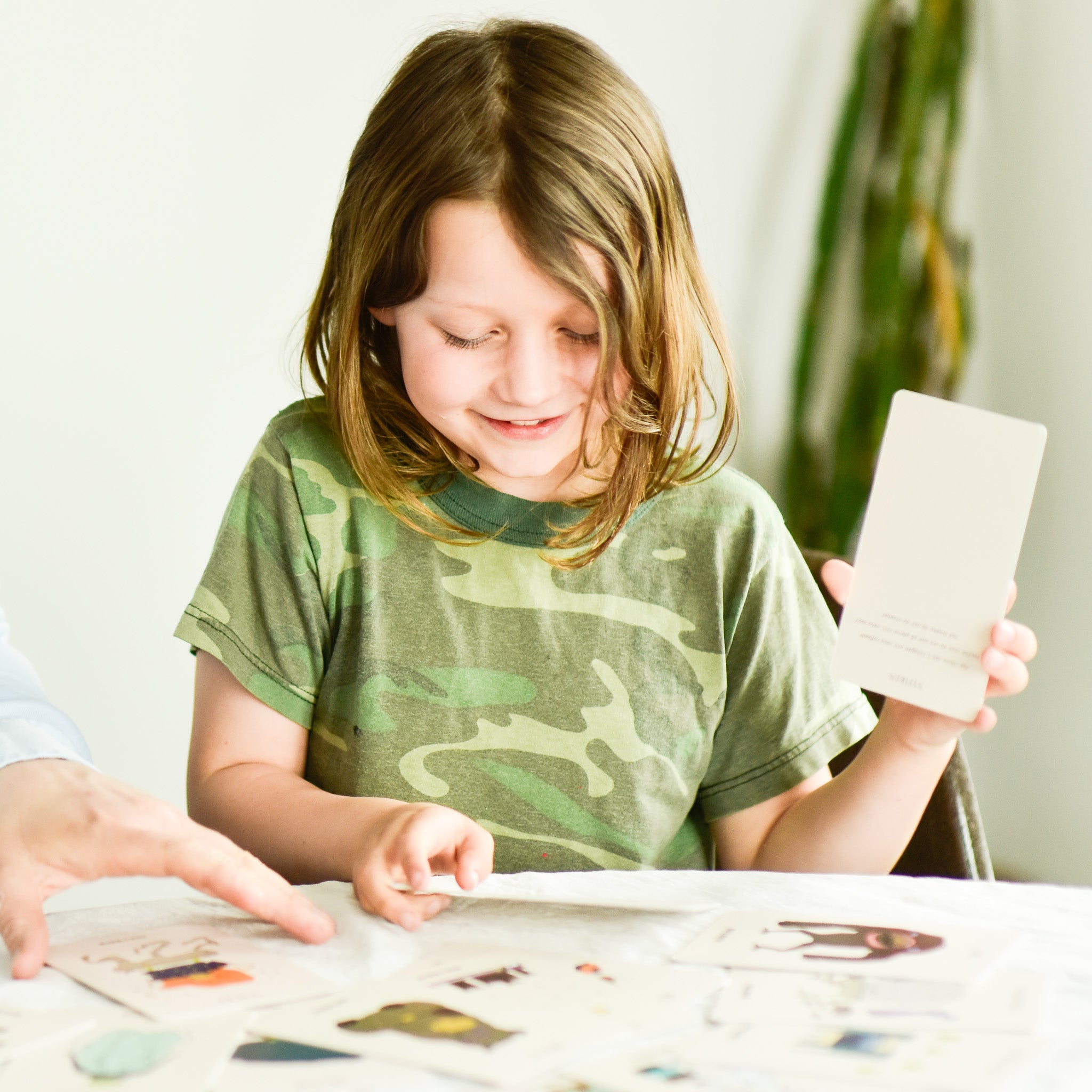



“If children don't learn to talk about their feelings now, the silence risks following them into adulthood.” - Licensed Psychologist
Why feelings need to be put into words:
✔ Builds resilience – Children who learn to talk about feelings handle stress better and become more confident.
✔ Deepens the relationship – Creates moments of closeness and trust between child and adult.
✔ Strengthens self-esteem – When children find the words, anxiety decreases and they become proud of who they are.
✔ Prevents problems – Research shows that emotional competence protects against mental illness later in life.

When feelings are put into words, something big happens
Children often feel more than they can express. Without words, they can easily feel misunderstood or alone. Studies show that children who develop an emotional language become more confident, more resilient, and less at risk of mental illness later in life.Me in me "makes feelings visible and talkable — so your child gets the tools to feel good today and build strength for the future."
Don't let feelings remain unsaid.
"Children who learn to talk about feelings become safer, more confident, and more resilient. Without these skills, there is a risk that feelings will stay inside — and follow them far into life."Me in me " makes it easy to start conversations now, strengthen your bond, and lay the foundation for lifelong well-being.
🧠 Psychologist designed • ❤️ Loved by families & schools • 🌱 For lifelong well-being







